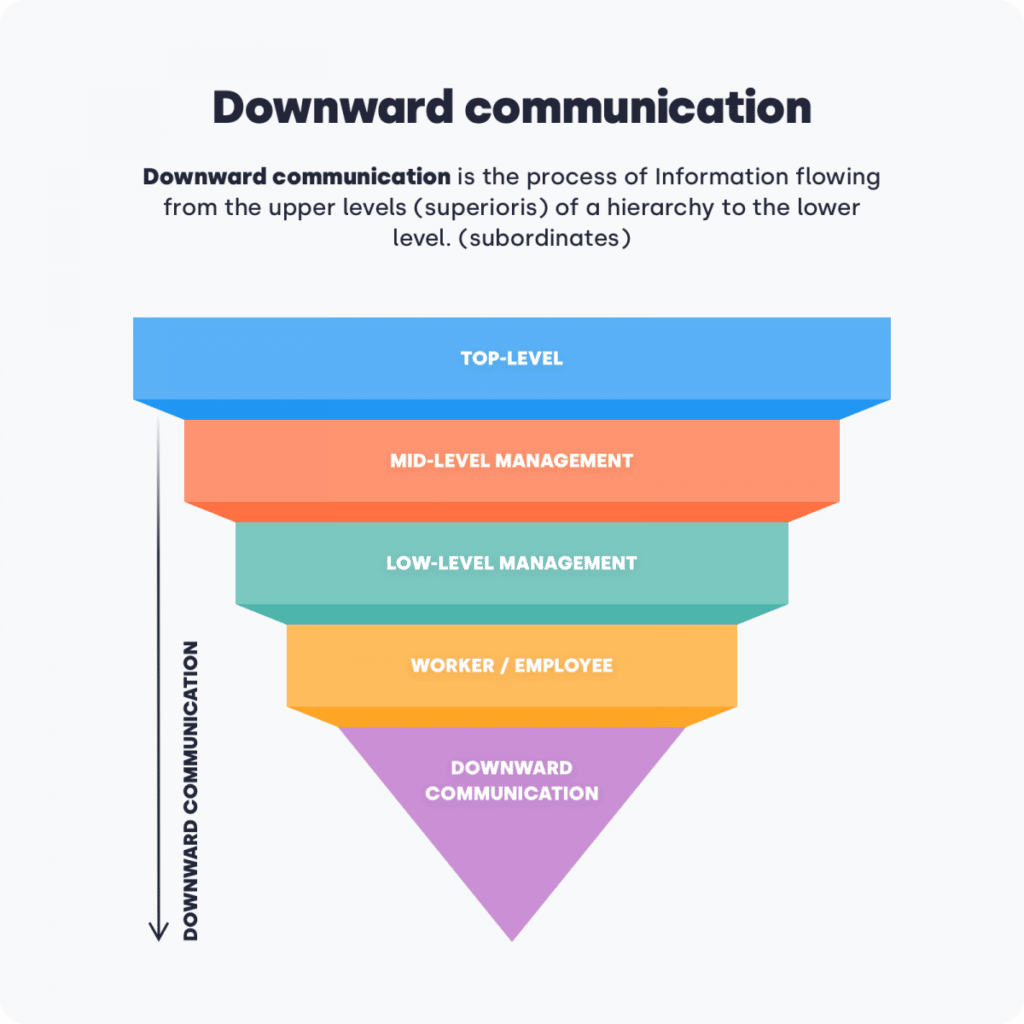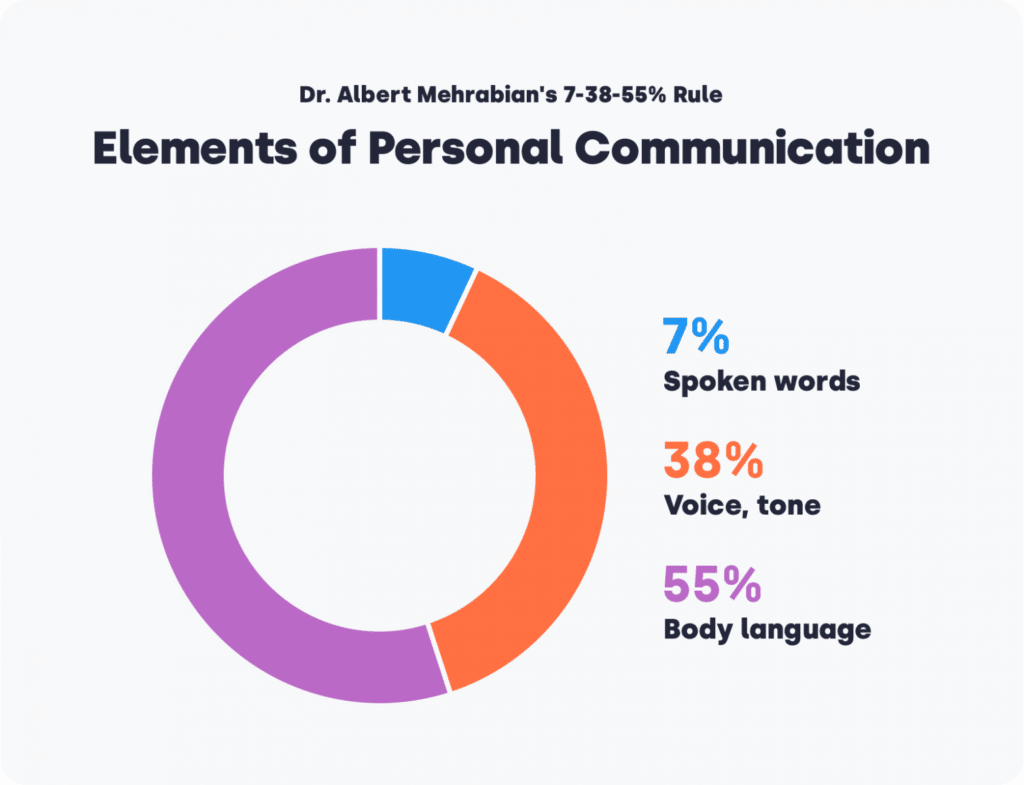The Importance Of Business Communication - Definition, Types and Tips

People communicate with each other all the time. Without communication, we would not be able to do anything. It’s hard to think of a situation when you do not need any type of communication at all. Without this useful skill, many of the things we have accomplished so far as humans would just be dreams.
There is one specific type of communication that should be of particular interest to company owners, employees and employers, entrepreneurs, and pretty much anyone who deals with businesses on a daily basis – business communication.
What can you expect to learn from this piece? We will define business communication and the different types of it with examples, touch upon the 3 means of business communication, and provide you with a list of useful tips and tricks on how to master your business communication skills like a pro. Without further ado, let’s jump right in!
What exactly is business communication
To understand what business communication is, let’s focus on the term ‘communication’ first.
What does ‘communication’ mean?
The word communication usually refers to talking, speaking, writing, or sending information to another person. The whole idea of communication is very complex and focuses on various aspects, many of which include:
- ensuring the message has reached the target audience
- ensuring the receiver of the message understands and responds to it, if necessary
- ensuring, as the message sender, that you communicate with manners and with appropriate precision and clarity
Support internal and external comms across multiple digital channels with CloudTalk
The role of communication in business
Business communication entails every sort of communication that occurs within a particular business environment. Business communication contributes to the development of an ability to influence others, bringing about changes in the attitudes and views of people, driving motivation, as well as creating and maintaining professional relationships.
Many scholars and business owners agree that it is the most important foundation skill for anyone in the world of work. Just think about your very first encounter with a company you are currently working at. Would you have gotten this job without professional communication?
In these times of fast-progressing globalisation and growing demand for teamwork, communication skills are absolutely crucial to the success of any business, regardless of its size. This helps streamline workflows and avoids overworking employees, which could lead to bad sleeping routines and poor decision-making. A rested employee is a productive worker! Businesses can also enhance collaboration and customer interactions by implementing dedicated communication tools. This G2’s comprehensive guide on best customer communication management software, backed by insights from the G2 Grid Report, explores top-rated platforms that help teams stay connected, organized, and responsive across multiple communication channels.
Now that we know what business communication is, as well as how important it is, let’s explore the different types of it and look at some examples of them:
Types of business communication with examples
We have divided communication into two main categories: internal and external. Both can be further divided into two different forms: upward and downward. Let’s explore each of them:
#1 Internal upward
This means any information transfer from an individual working in a company up the organizational hierarchy, for example from a subordinate to a manager. Managers often need various types of messages from the people working in the teams they manage. When team members provide their managers with any type of information, we consider this internal upward communication.
Examples:
- Sales reports
- Surveys
- Templates
- Summaries
- Systematic forms
- Feedback forms, grievances, and disputes
#2 Internal downward
Internal downward communication is the opposite of internal upward communication and occurs when a superior communicates with one or more subordinates. For example, managers reaching out to the employees they manage.
It is most commonly used for things like transferring crucial information, providing instructions, encouraging discussions between people, motivating staff, and increasing productivity.

Examples:
- Job instructions and rationale sent from directors to managers
- Forms sent from mid-level to low-level management employees
- Procedures and practices
- Performance feedback forms
- Presentations about a company’s strategy and core values presented to new employees during orientations
#3 External upward
External upward communication takes place between employees inside an organisation and stakeholders outside of it who are located higher in the hierarchy. External stakeholders include business partners, government officials, community residents, and external administrators, etc.
Examples:
- Invoices
- Annual reports
- Purchase orders
- Newsletters
- Magazines
#4 External downward
In a similar fashion, external downward communication occurs between a company and its external stakeholders, but this time the party higher in the company is the one starting the communication. External communication typically includes brochure templates, email, newsletters, and posters that are all intended to attract potential customers, partners, and suppliers. This also includes marketing forms, which are often used to collect leads, understand customer preferences, and initiate targeted campaigns.
Examples:
- Product training and support communication
- Promotional and marketing literature
- Communication with sales and delivery channels
#5 CRM automation through messaging platforms
As customer communication gets instant and multi-channel, CRM’s that integrate with messaging apps like WhatsApp are a must. These tools allow you to automate interactions, qualify leads and centralise communication without overwhelming your support teams. Take Kommo, for example. It combines CRM functionality with native WhatsApp integration and a built in Salesbot, so you can send automated replies, guide customers through the sales funnel and keep every interaction in one inbox. This saves time and delivers fast, personal experiences.
Examples:
- WhatsApp chatbot for lead qualification
- Automated replies to FAQs via CRM
- Centralised inbox for WhatsApp, Instagram and email
This not only saves time but also ensures your customers receive fast, personalized responses—without overwhelming your team.
Means of business communication
Business communication can be done in many ways, and we’ll explore 3 of them in this article:
Verbal
Verbal communication is basically any type of oral communication in the form of spoken language to send information to other people. In verbal communication, not only do people communicate with words, but they also often attach emotions, feelings, thoughts and ideas to them, whether intentionally or not.
Have you ever heard of the 7-38-55 rule? It is Albert Mehabrian’s theory concerning the communication of emotions. According to this concept, 7% of meaning is communicated through spoken words, 38% by tone of voice, and 55% via body language. You may want to remember about it next time you’re faced with an important conversation with your boss about a raise!

Written
Written communication, as the name suggests, consists of all types of information sharing that is in the form of written messages like emails, letters, reports, telegrams, bulletins, manuals, paper announcements, and more. Unlike verbal communication, it takes a bit more effort to communicate emotions and feelings with written communication.
Things to look out for when using written communication include choosing the correct level of formality, being aware of spelling and grammar mistakes, as well as the appropriate clarity for the receiver.
Leverage dynamic call scripting, streamlined workflows, and diverse communication channels with CloudTalk
Remote
You may be familiar with ‘remote work’ that many employees are currently experiencing due to the COVID-19 pandemic, but are you familiar with remote communication? It occurs at a distance, mostly via electronic tools. Thanks to remote communication, you can work remotely without face-to-face interactions.
There are many tools out there allowing for remote communication. Some of them are:
- Telephone calls, like call center solutions
- Emails
- Email ticketing system
- Online chats and conferences
- Work operating systems
- Video meetings, such as webinars
- Visual communication tools like a screen recording software, snipping tool, or GIF maker

How to master your business communication skills – our 7 lucky tips and tricks!
Now that you know what business communication is, as well as the different types and methods, it’s about time we shared with you some of our secrets.
In the final section, we will give you our 7 top tips and tricks to mastering your business communication skills. Let’s get to know them:
Work on your body language
Your body language, as well as your appearance, plays a significant role in the way you are perceived during business communications. Pay attention to the language you use when you interact with people in a business environment, take care of your looks, and make sure you stick to the appropriate dress code. Finally, remember the aforementioned 7-38-55 theory.
Listen carefully
To communicate effectively, you need to keep your ears open. Communication works both ways, and you should always make a note of what the other person wants to communicate to you. This also shows respect and engagement.
“If you think communication is all talking, you haven’t been listening.” – Ashleigh Brilliant
Practice your general communication skills
Practice makes perfect. If you feel as though you lack some fundamental communication skills in a business environment, focus on practising them outside of your workspace. Make speeches, chat with friends about various topics, engage in discussions, and listen to podcasts. You will see great results quickly!
Use the right channels for different types of communication
It’s hugely important to use the right channels for various types of discussions and conversations that occur within a business environment. Set clear guidelines, make sure everyone knows them, and stick to them. This will contribute to maintaining a well-organized workplace with dedicated spaces to professionalism as well as out-of-work topics.
Setting up such channels might apply to your customer service as well. You could, for example, run a customer support line through a call center tool. Today, call centers are still highly regarded by customers, so this may be a good option for your business. There are many reliable tools to choose from, but CloudTalk is the only choice if you are looking for the best solution out there. Offer your customers a personalized experience and solve any issues quickly thanks to human-to-human interactions.
Expand your business vocabulary
If you work in a niche business, you may need or get acquainted with vocabulary and jargon that is specific to your niche. Read about your industry, watch movies, listen to podcasts, and chat with your coworkers. Everything takes time, but you will get there eventually.
Prepare for meetings to avoid stress
Stress can be a huge brain freezer, so make sure you always prepare for your business meetings in advance. There is nothing worse than having to think on the spot, especially if you are already struggling with communicating effectively. Avoid having to do so by preparing well and being relaxed when it is time to ‘do the talking’.
Engage in discussions
Engaging in vivid and lively discussions will be a great stimulation for your brain and communication skills. The more you interact with other people, the better you will become at it. Business communication is not as scary as it seems!

All-Things Business Communication Discovered!
Here we are! Richer in knowledge and insightful pieces of advice.
Business communication plays a significant role in any company, and it should always be one of the key fundamental elements of success. Excellent communication skills within a business environment vastly contribute to personal growth, increased quality of performance at work, and overall job satisfaction.
In this article we have:
- explained the term ‘business communication’
- given examples of the various type and methods of communication
- provided you with insightful tips on how to improve your business communication skills
Keep in mind that communication is very important everywhere, but especially in professional spaces. Follow this guide and our blog for more content on communication, specifically that regarding call centers and telephone support services.
















